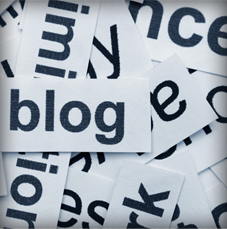



WORDS TO
THE WISE
The Power of Editing
03.26.12
“Um, you have something in your teeth.” If you’ve ever heard these words from a friend, you know the value of someone pointing out an embarrassing detail you overlooked.
The same is true of editing, a stage in the writing process that’s often ignored but always crucial — especially in today’s media environment, when we’re bombarded by thousands of messages every day. Losing your audience’s trust is as easy as making one mistake.
Even the most seasoned communicators realize the importance of editing. In response to a question about his work habits, advertising mastermind David Ogilvy wrote: “I am a lousy copywriter, but I am a good editor. So I go to work editing my own draft. After four or five editings, it looks good enough to show to the client.”
Reviewing your own writing with a critical eye is a good place to start. In a recent column for The Chronicle of Higher Education, writing professor Rachel Toor reveals a few tricks, such as typing in a different font, enlarging the text on her screen so mistakes jump out and proofing hard copies of her manuscripts. Reading your work aloud can help, too.
It’s also smart to have a colleague read your writing — not only to eliminate errors, but to help refine your message. Having a second set of eyes on your work can help you recognize when a point won’t register with your readers the way you want it to.
All of this can add up to a big difference when it comes to reaching your audience. IBM tested edited vs. unedited versions of web content, measuring how many clicks each version received. “The results were astonishing,” they concluded. “We got a 30 percent improvement on the desired call to action for the pages across the board.”
Now that’s the power of editing.
Having finished lunch a few minutes ago, staff writer Mary Tindall just checked for any errant sprigs of broccoli in her teeth.
Shhhhhh … Your Audience is Listening
03.06.12
In line at the grocery store. At the dentist’s office. Waiting for your appetizer. They’re everywhere … professionals who can’t stop talking on their cell phones.
Doctors have HIPPA. Lawyers have attorney-client privilege. Communication professionals, those who should know better than anyone else, don’t have much holding them back from saying whatever they want, whenever they want.
In today’s age of rampant video phones, real-time updates and microblogs, I continue to be shocked at the amount of information people will share when they’re on their cell phones in public. Case in point: The other day while I was in line at an ATM, a well-suited woman standing in front of me was talking on her phone regarding her clients’ not-so-fantastic views of the media and how she planned on “dealing with them.” Although I could tell you what company she worked for, I won’t. Although I could tell you how she felt about a particular news team, I won’t. And although I could even tell you how she felt about that particular client, I won’t.
But the point is, I could if I wanted to.
So please, keep in mind who is around when you’re discussing clients, or anyone else for that matter. Personally, I don’t care. But someone out there does. And you never know who will be listening.
